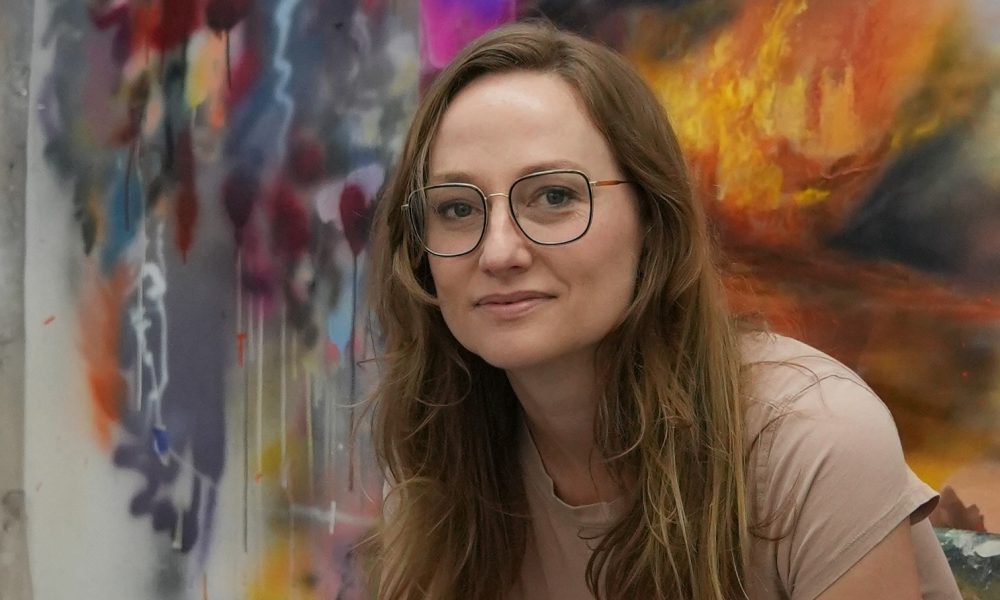
Today we’d like to introduce you to Annie Lapin.
Hi Annie, thanks for sharing your story with us. To start, maybe you can tell our readers some of your backstory.
As a kid, I had always made art and thought of myself as an artist, but I didn’t understand how that translated into a profession. So, in college, imagining a life in academics, I pursued archaeology. It combined my interests in art with core questions for me, which included how culture affects what we see in the world, why anyone in any culture makes art, how art is or is not an outward manifestation of the psyche, and how much of the psyche is constructed by time and place. After a couple years of study, however, I realized the canvas was a more apt site of exploration for me. In the studio painting, I felt I was still exploring parts of ourselves and our experience of the world, and I preferred it over creating arguments in words. So, I continued my studies at the MFA program at UCLA, where I found my community and voice.
We all face challenges, but looking back, would you describe it as a relatively smooth road?
At UCLA, the art market is right there, staring down at you. It’s a great platform, but if you’re making work that it wants, you’ll get snapped up right away. And this can affect your psyche and your practice when you’re just out of grad school. So, when I graduated in 2007, that was a bit of an adjustment, as I experienced for the first time the schism between making work in the studio vs. the way it exists and is understood outside the studio, in galleries, museums, and collections. Happily, I had a lot of older role models who kept saying, “Don’t worry about anything except whether the work is great. If it is really good, it’s undeniable.” So, I learned to put my head down and just work.
Similarly, becoming a mom in 2014 and having my second baby in 2018 was initially very destabilizing to my studio practice. It wasn’t just finding the rhythm of motherhood and the studio. What it really did was force me to reassess everything I was doing. Comparing the act of creating humans to the act of creating paintings… it was hard for painting not to come up short. So, when I returned to the studio, I urgently needed to find a way to make paintings that mattered to me again. To be clear (because people often ask this), I don’t mean being a mom reoriented my work towards thoughts about my children or anything. I mean, I needed to clarify and, more precisely, express the most powerful ideas that have driven me my whole life. Took a couple years, and it was a challenge, but I was in a phase of life where this cutting through the BS and pushing myself to uncomfortable places helped me grow as an artist.
Appreciate you sharing that. What else should we know about what you do?
I see my paintings as a collection of cues found through chance and automatic discovery. Starting from random paint pours on the canvas, I intuitively work towards the surrounding picture, tapping into my own memory and an archive of images online. The goal of the broader picture that emerges is to tell a disordered story about space and time and a sense of the sublime, but with the same level of logic you might find in a hallucination, dream, or even a myth.
I see the physical process behind each painting as a metaphor for how we build stories about our world. It begins with something real or physical, a pour on the canvas. Then, the process of interpretation begins. Each layer of imagery changes the space. As these visual conflicts emerge on the canvas, I employ abstraction to apply visual harmony to these colliding worlds and histories.
I am also motivated by questions about what “the sublime” is and whether it only exists in pictures. I wonder, after we are all dead, and perhaps the landscape is gone, how might someone/thing that has access to the digital stores of humanity’s visual detritus reconstruct the sublime?
I’ve been thinking this way a long time, but I’m excited and mildly freaked out by the ways it parallels emerging questions about AI, and how it sees things that we make and hold sacred.
We’d love to hear about any fond memories you have from when you were growing up.
I’m not sure what my favorite memory might mean… I suppose the most salient memory I have is being about ten years old and seeing how completely different my understanding of the world could be from other kids. I was always moved, impressed and sort of terrified by our smallness in the vastness of the universe. I was totally in awe learning about the evolution of humanity and other histories on an even more cosmological times scale. And I remember being at a sleepover in my sort of conservative town in Kentucky with a lot of kids from my school, where it was forbidden to teach evolution. It was late at night, and we were all in a state of feeling rapt and excited by questions about the meaning of life and where we came from. But in the conversation, I learned all of my friends had never heard of evolution and sort of laughed at the notions I was talking about, and they were equally in awe of the idea that Adam and Eve could be real people only a few thousand years ago. Fascinating that we could think so differently but inhabit the same world. Episodes like this have always made a huge impression on me. This was just the first one.
Contact Info:
- Website: https://nazariancurcio.com/artists/37-annie-lapin/
- Instagram: @annielapinstudio
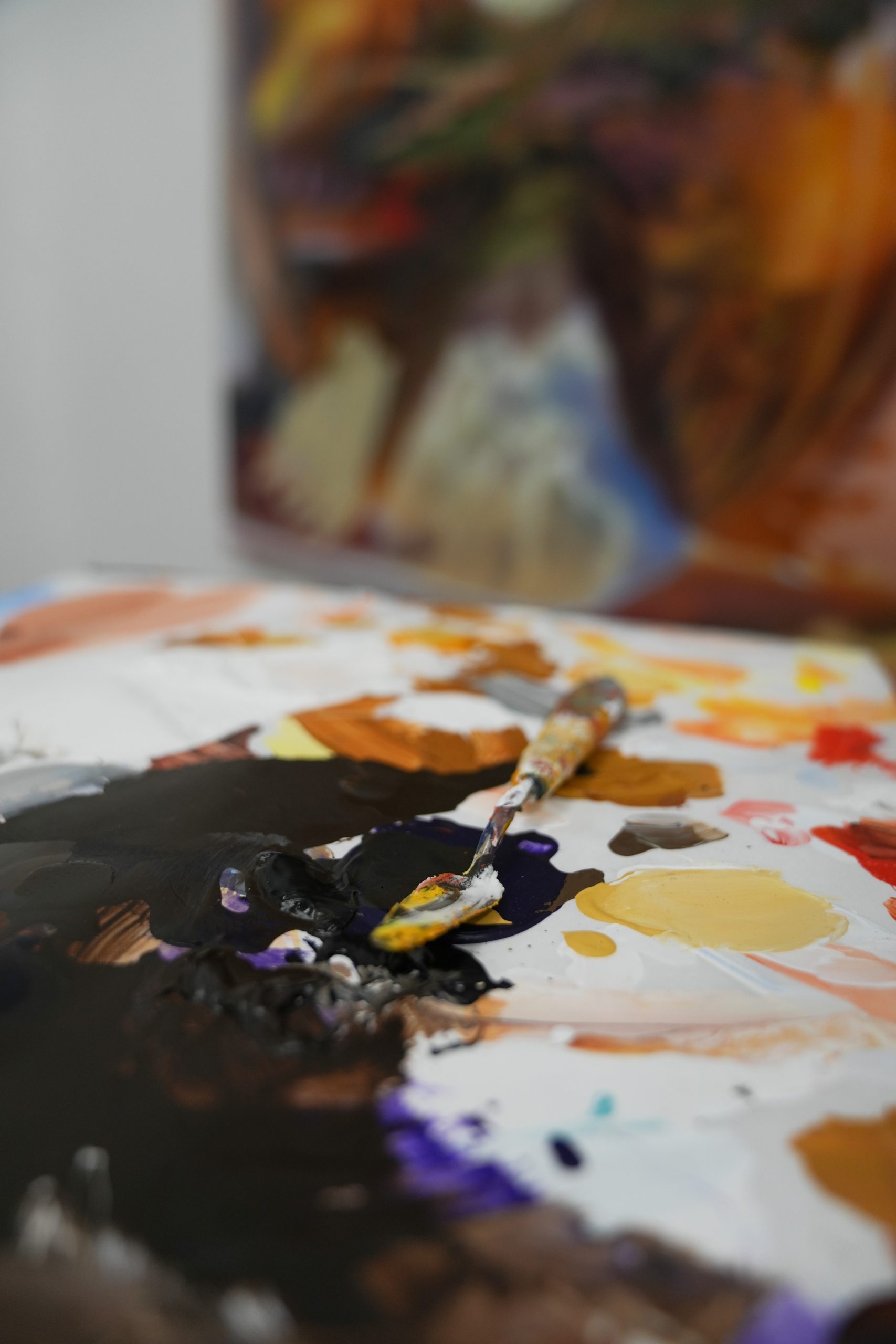
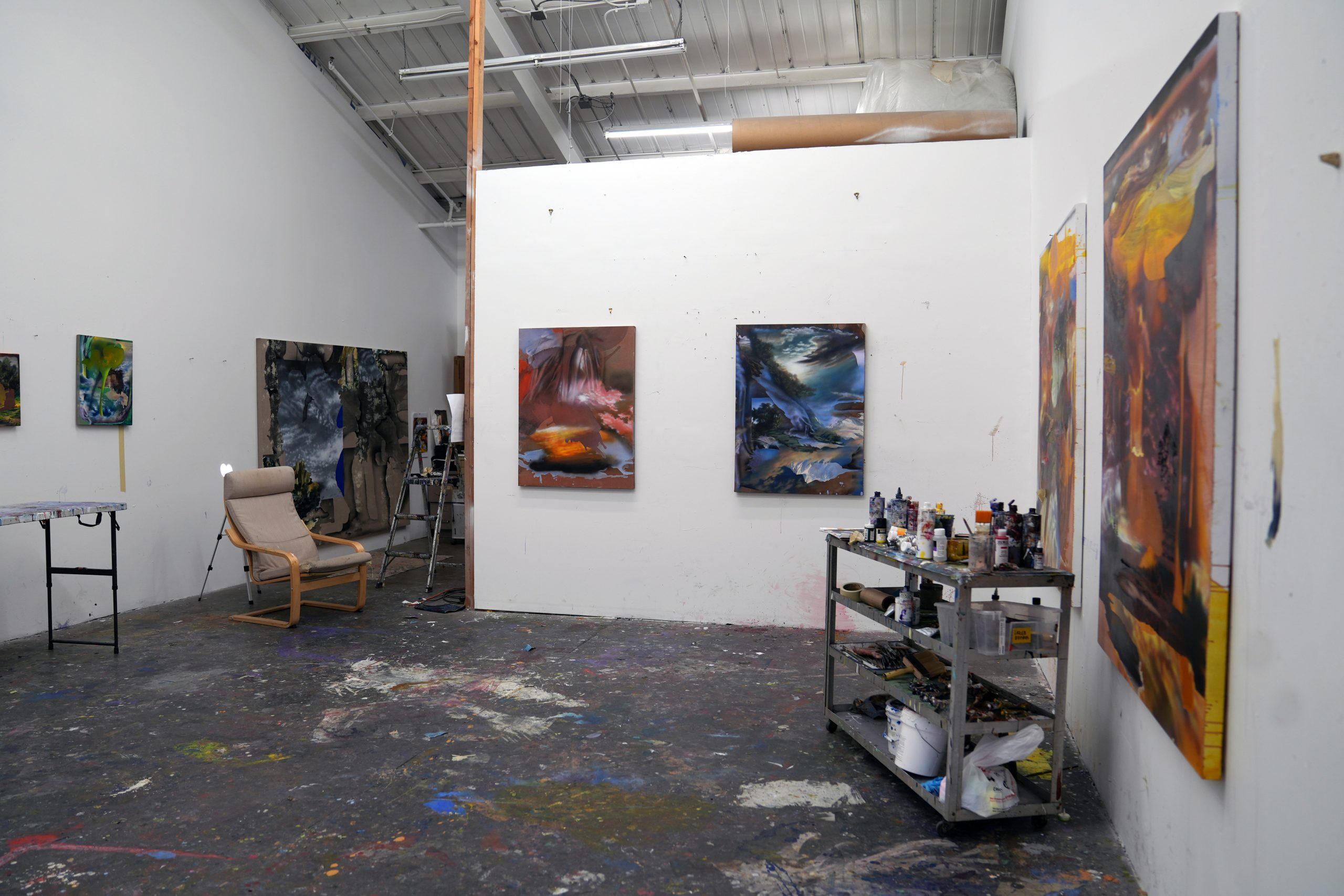
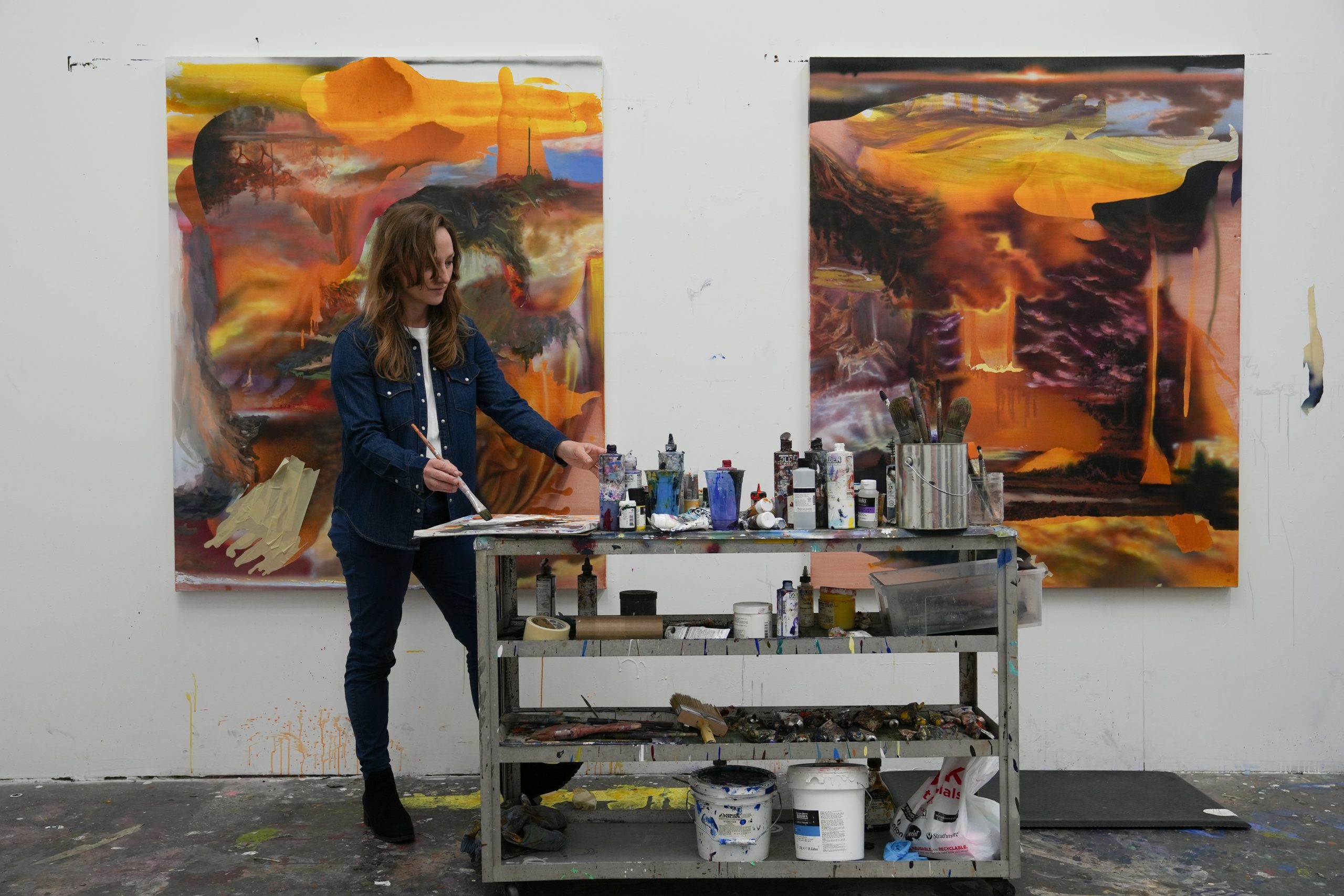
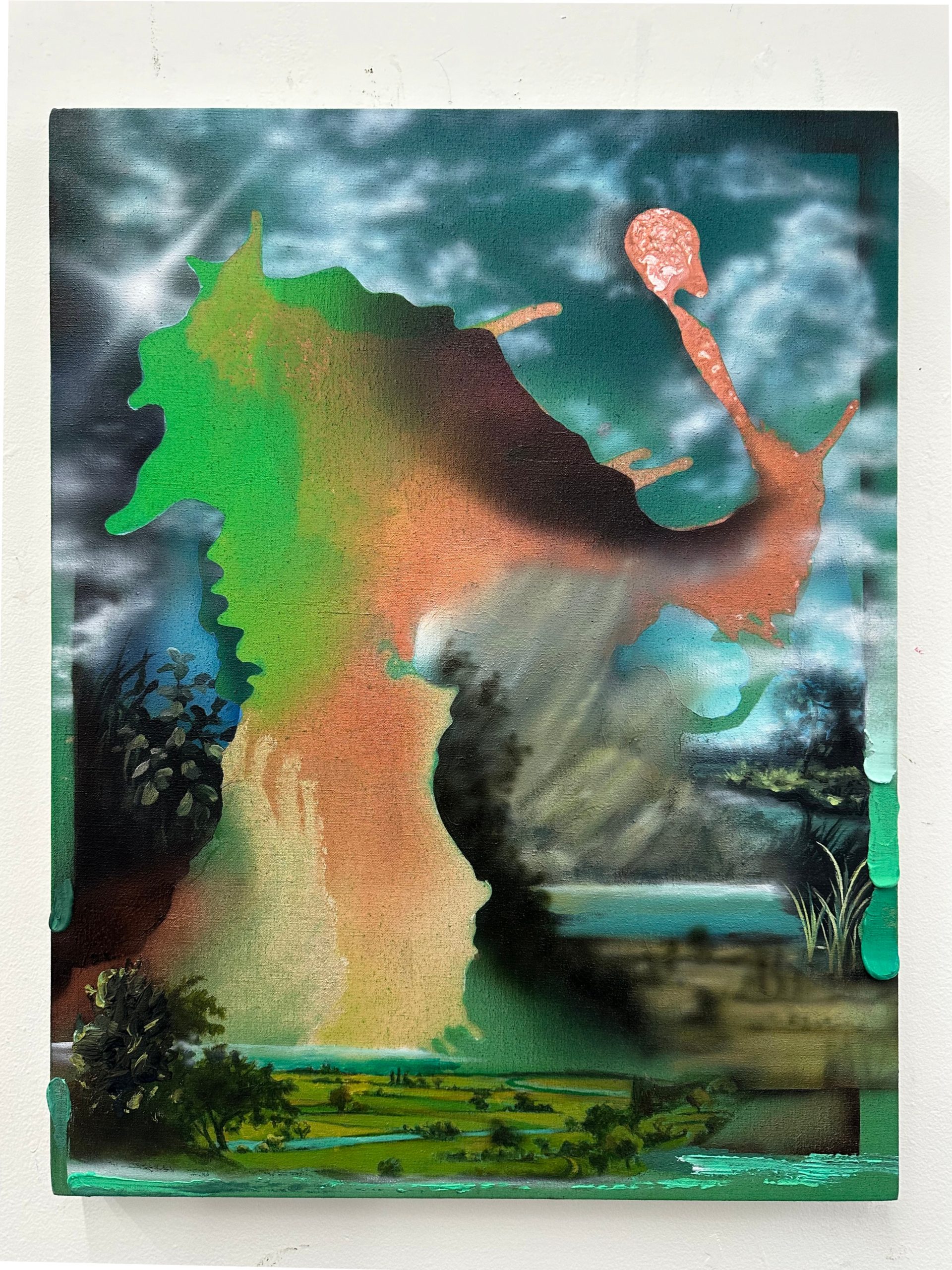
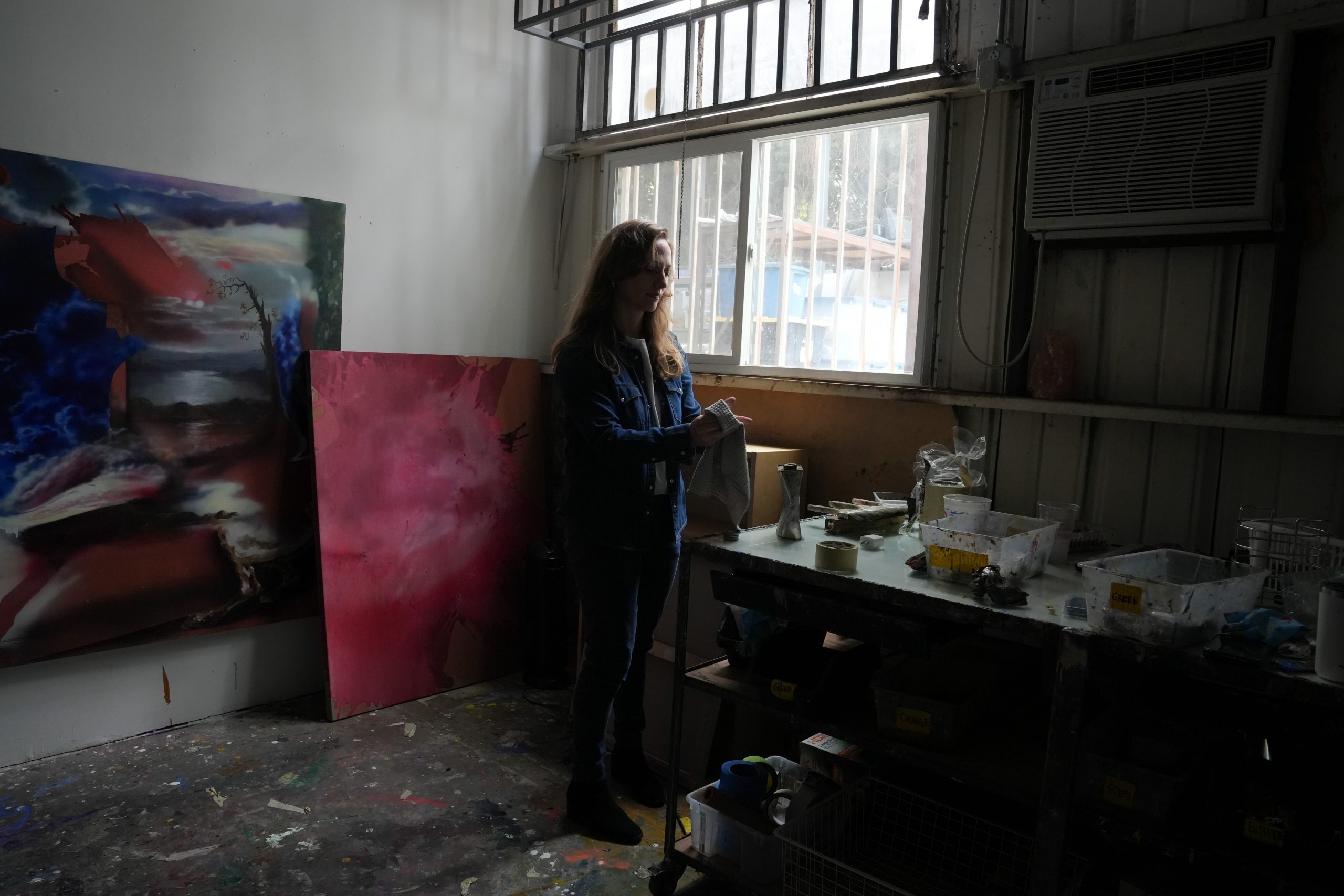
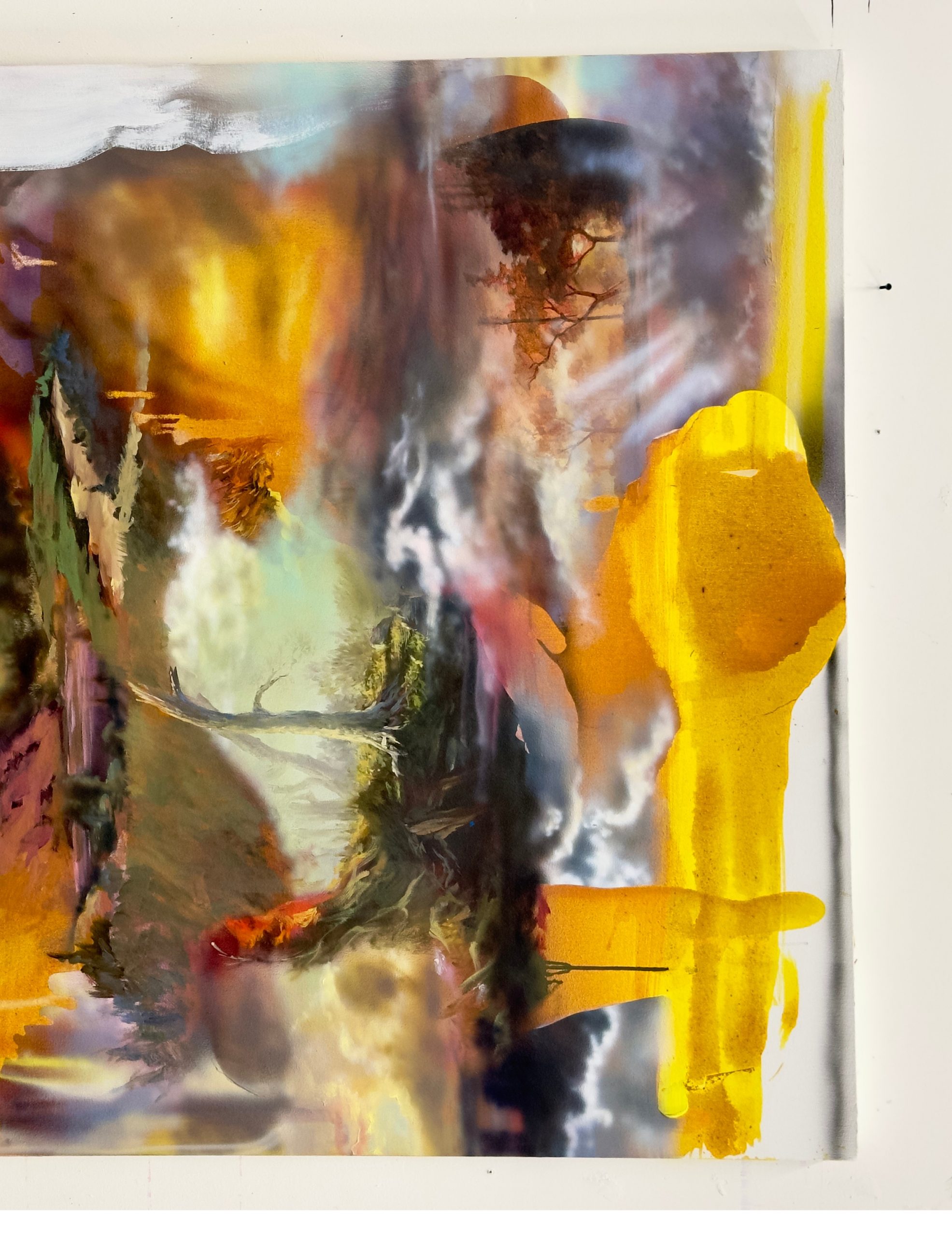
Image Credits
Kristina Corrales

